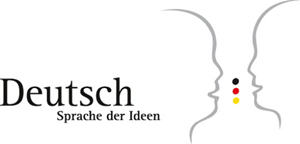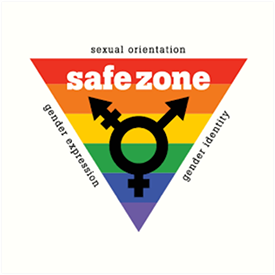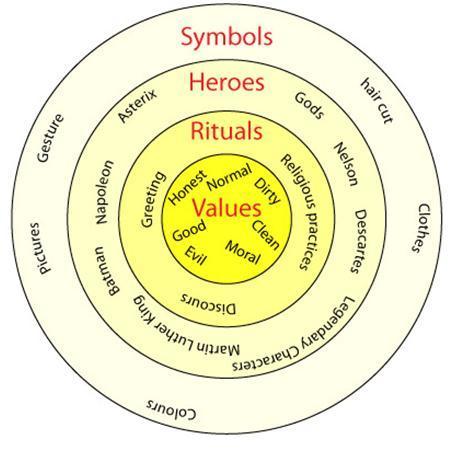Anthropology and Language
Exploring another culture
Examines the dynamic processes by which our direct interaction with foreign cultural products-language, texts, performances and other representation systems-influence how we, as language learners, see and understand the world and our place in it. LANGCULT 200 presents world culture in its historical contexts through lectures, projects and discussions. LANGCULT 200 is required for all students majoring in Languages and Cultures. There are no prerequisites for LANGCULT 200. Course is offered in alternating semesters.
GOALS AND OBJECTIVES:
Communicate historical, social, political, geographical, intellectual and aesthetic features that shape culture and language.
Communicate basic information pertaining to other cultures and compare those cultures with one's own.
Identify cultural differences in verbal and nonverbal communication.
Analyze critically biases held personally and by one's own culture.
Critically analyze the historical, ethical, political, cultural, environmental, or circumstantial settings or conditions that influence and complicate the consideration of ideas regarding languages and cultures.
Produce well-organized presentations and write coherent, polished essays on language and culture.
Most classes will include a combination of lecture and group work. Like most 100- and 200-level Languages and Cultures Department culture courses, this course should be capped at 30 to facilitate discussion and adequate attention to writing instruction and evaluation.
Activities
Study: Students are expected to study and learn the material, taking responsibility for their own learning. Attendance in class and completing assignments is not enough preparation to master the material. Students are expected to spend two hours outside of classtime to prepare for each class session (six hours per week).
Collaboration: Students will be required to collaborate in pairs and in small groups for both homework assignments and for in-class activities. Students may also grade each other on their performances.
Presentations: Students will be required to give presentations that demonstrate thorough knowledge of a topic. Reading from Power Point slides is NOT acceptable.
Writing: Students will write short essays, an outline of the final paper, and a final paper. Collaborative tasks may be assigned. Unless otherwise instructed, essays will be submitted as MS-Word documents in the designated "assignment" folder on BOLT; no other format is acceptable.
|
New Studying Resource: CircleIn
Bloomsburg University has made CircleIn, an all-in-one studying app and website, available to all BU students. When students wish to talk to other students in class for clarifications, practice, or get help from others in class, this app is an ideal platform. By using CircleIn students can earn rewards and scholarships. |
Any act of misrepresentation or conflict with the order of the course, including, but not limited to plagiarism, cheating on tests, false excuses for absence, disruption of class, or engaging in activity during class other than the work at hand, constitutes academic misconduct. (See BU Policy #3512 "Academic Integrity.")
The following are some examples of disruptive acts during class:
The instructor will request those who are disruptive to leave the classroom. If the request is ignored or contested, University Police will be called to provide assistance. For online sessions, the instructor will remove disruptive students from the class session.
Any and every act of misconduct will affect grades; in the worst cases, such as plagiarism or cheating, students will fail the course.
Students who commit an act of academic misconduct will be subject to sanctions as stipulated by the university. See BU Policy 4802 secton H.
(PRP 3506) "Regular classroom attendance is expected of all students. However, a student will be afforded reasonable assistance by a faculty member when class work is missed as a result of extenuating circumstances beyond the student's control, such as but not limited to: personal illness, death or critical illness in the immediate family, participation in a college-sponsored co-curricular activity. Mutually satisfactory arrangements for assistance must be made by the student when the activity is announced. Instructors are encouraged to use their professional judgment in deciding the legitimacy of each case and may request the student to provide official documentation to verify the reasons for the absence. The instructor is not required to give makeup examinations or review other class work missed as a result of unauthorized absences other than those authorized by this policy."
NOTE: The Student Health Center does not issue student illness excuses for missed classes.
For every excused absence the student is responsible for furnishing adequate documentation.
Every unexcused absence will diminish the student's grade.
Students are responsible for classwork and assignments whether an absence is excused or not.
Students can be marked as absent if late for class.

◊ Attendance and regular active participation is essential. Every absence and lack of preparation will diminish the final grade.
◊ Students are responsible for any and all assignments posted on BOLT, to be completed by the due date.
◊ Students are responsible for any and all assignments sent to their BU email address (University policy).
◊ Written essays must be submitted as an MS-Word document in the disignated folder on BOLT. No assignments will be accepted as email attachments.
◊ Assignments are accepted on the due date only, unless there is compelling need to submit a late assignment.
◊ Two hours of preparation is expected for each hour in class--six hours of preparation per week.
◊ Students are expected to study the material. Completing assignments and attending class are only part of the learning process.
◊ Attitude will contribute significantly to the final grade, even though it is not evaluated in quantitative terms.
◊ Everyone presents an outline and summary of final essay: 15% (in-class presentations on 22 November 2021)
Anyone who does not attend this class will receive a 0 for the grade.
◊ The final essay will be due at the time at which the end of the final exam is scheduled.
◊ Grades posted on BOLT do not represent the official grade record; grades posted on BOLT allow students to gauge their progress during the semester.
◊ No extra credit assignments will be given.
◊ These procedures are subject to change at any time.
Grade distribution (tentative):
◊ Short writing assignments: 25%
◊ Active participation in class and quizzes during class: 30%
First Day Quiz
◊ Outline and summary of final essay: 15% (in-class presentations on 22 November 2021)
◊ Final essay: 30%, due 7 December by 4:45PM.
◊ Course Reading Packet (in the BU bookstore)
◊ Kramsch, Claire. Language and Culture. Oxford: Oxford UP, 1998. (required)
◊ Otiso, Kefa. Culture and Customs of Tanzania (Culture and Customs of Africa). Westport: Greenwood, 2013. (required)
◊ Standard 8½" by 11" lined writing paper, either loose-leaf in a binder or a bound notebook.
NO laptops or cell phones are permitted during class unless required for an classroom activity.
◊ An electronic response device (clicker -- available in the BU bookstore) will be required for daily quizzes and must be brought to every class.
◊ Internet sites and apps as needed.
◊ Readings and materials furnished by the instructor at no cost; links below.



The lesson plan only sets approximate goals and can be changed at any time.
For the complete tentative schedule of class sessions: LANGCULT 200 calendar

Exploring another culture

Communication without the written or printed word

How people define themselves

Human Geography and Culture over Time